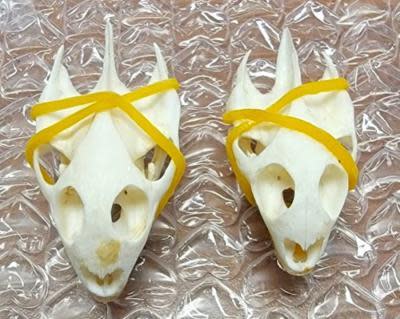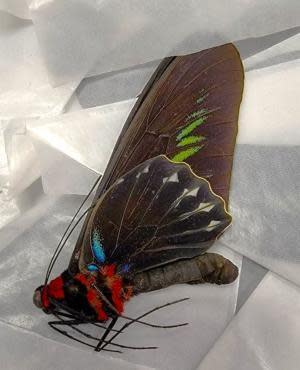Turtle skulls and elephant toenails are among thousands of items seized at LAX mail facility

Turtle skulls, elephant toenails and sea cucumbers were among the thousands of animal and plant products seized at Los Angeles International Aiport’s mail facility over the last seven months.
More than 4,220 products sent via air mail have been confiscated by U.S. Customs and Border Protection and the U.S. Fish and Wildlife Service since October for being in violation of wildlife laws and endangered species rules, according to CBP. Export rules vary by country and generally apply not just to live animals and plants but to their byproducts, such as fur, hide, feathers, scales, antlers and bones.
“Illegal wildlife trafficking is one of the most profitable natural resource crimes,” Andrew H. Douglas, Customs and Border Protection port director of Los Angeles International Airport, said in a statement. “It encompasses the harvesting and selling of wildlife, and wildlife products, to be used as medicine, fashion, food, or pets sold to consumers.”
The items arrived from Singapore, Vietnam, Australia, China, Thailand, the United Kingdom, Mexico and Peru. The batch also included crocodile wallets, butterflies, jerky, shark cartilage, peacock feathers, kangaroo meat and other animal parts.

U.S. Customs and Border Protection has previously reported confiscating items in Los Angeles shipped by air and sea that are often hidden by something else, such as a smartphone case or a tablet. In 2022, for example, CBP found live centipedes concealed inside earphone cases.
More than 4,600 prohibited animals and plant items shipped via air were confiscated during the 2021 fiscal year in Los Angeles, and more than 1 million pounds of prohibited animal products were intercepted at the Los Angeles and Long Beach ports in fiscal year 2022.
CBP warned travelers to research a country’s prohibited items before purchasing a souvenir to ship home.
“Just because you find an item for sale does not mean it is legal to import," the agency said in a statement. "Some of these products may be made from illegally taken animals or plants and may not be exported or imported."
This story originally appeared in Los Angeles Times.
